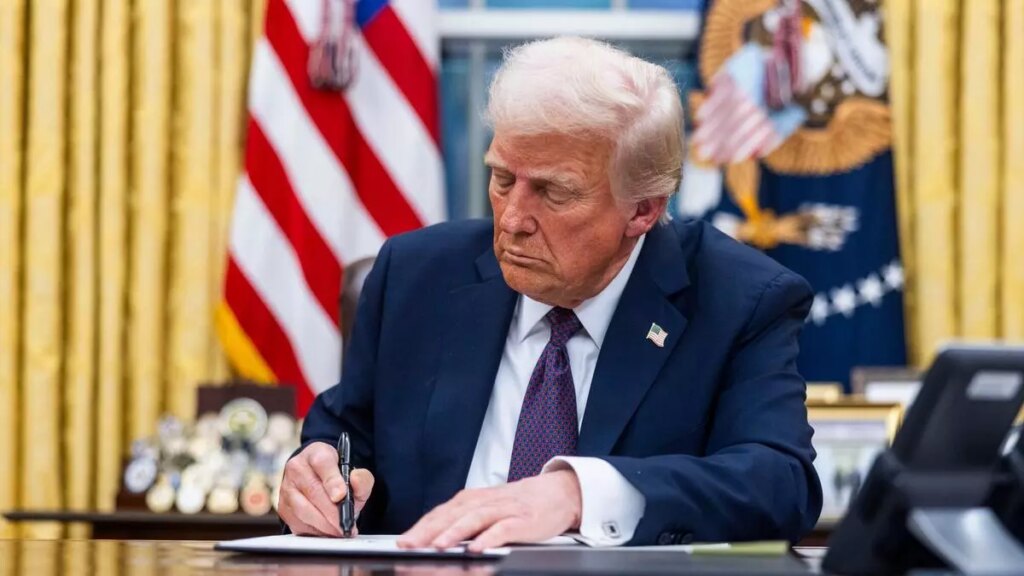The Trump administration has decided to end all commitments by the US to the Global tax deal. Among the first Presidential actions was an executive order on Monday night effectively pulling the US out of the landmark 2021 OECD (Organization for Economic Co-operation and Development) Global tax deal negotiated by the Biden administration with nearly 140 countries including India. The tax pact allowed other countries to levy top-up taxes on US multinationals.
This is in line with Donald Trump’s tough stance against other countries, especially in Europe, during his first term, over the proposed digital taxes that affect US tech giants including Apple and Alphabet.
Latest reversal
The latest executive order issued by the Trump Administration says it will investigate “Whether any foreign countries are not in compliance with any tax treaty with the USD or have any tax rules in place, or are likely to put tax rules in place that are extraterritorial or disproportionately affect American companies”. The report will be submitted to the President within 60 days.
“The OECD Global Tax Deal supported under the prior administration not only allows extraterritorial jurisdiction over American income but also limits our Nation’s ability to enact tax policies that serve the interests of American businesses and workers. Because of the Global Tax Deal and other discriminatory foreign tax practices, American companies may face retaliatory international tax regimes if the United States does not comply with foreign tax policy objectives. This memorandum recaptures our Nation’s sovereignty and economic competitiveness by clarifying that the Global Tax Deal has no force or effect in the United States,” the order said.
The Global Tax Deal agreed at OECD in 2021 and partly introduced by several countries last year was expected to raise the tax take from large multinationals. Under Pillar II of the OECD Deal, if corporate profits were taxed below 15 per cent in a country where the multinational was headquartered, signatories could charge top-up levies.
Last July, India said that it will not sign a global corporate tax deal focused on highly profitable multinational firms unless its concerns on dispute resolution and the treatment of withholding tax are addressed. Among other issues, India does not want any tax-related disputes to be subject to international arbitration. As a conciliatory measure, India proposed to remove a 2 per cent equalisation duty on digital service providers that would cost the Indian government about ₹2,500 crore ($300 million) annually.

